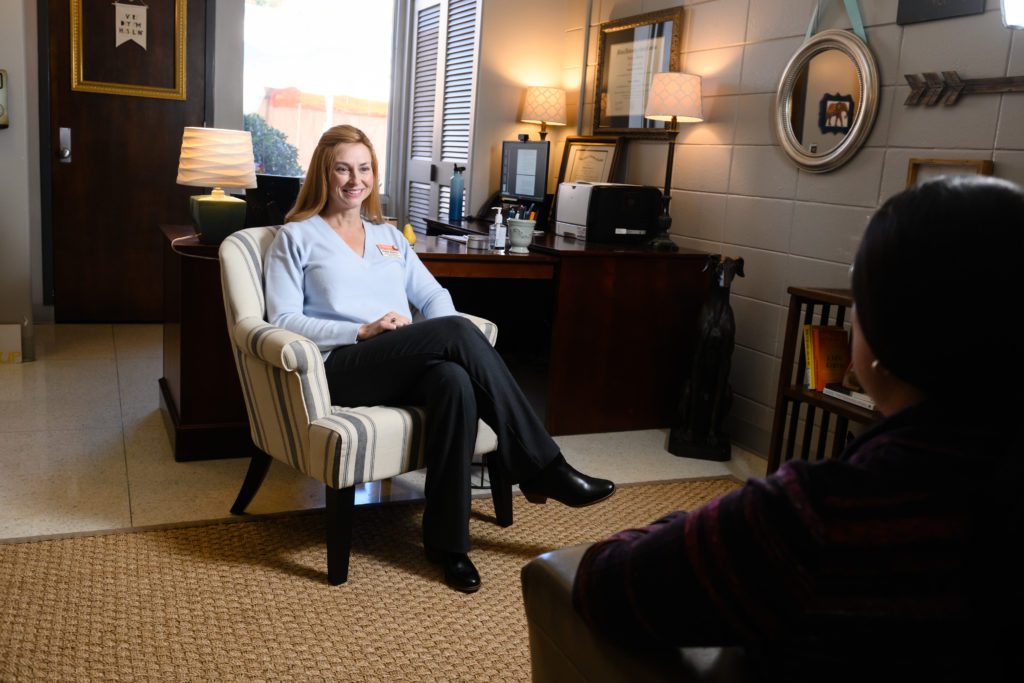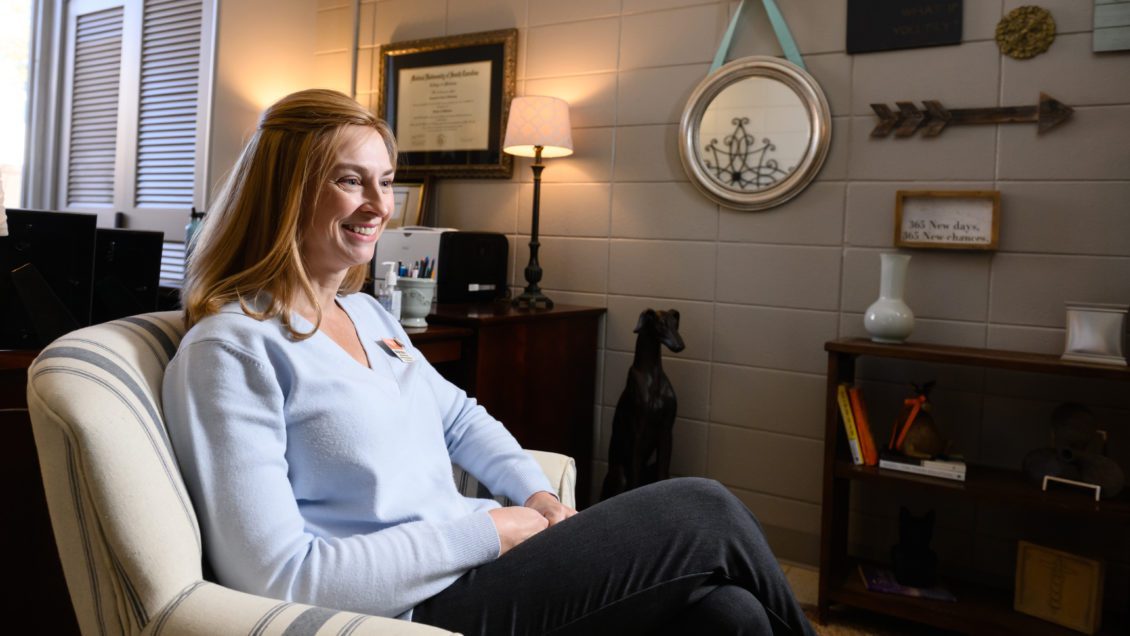From an early age, Jackie Mouzon always knew she wanted to be a doctor.
When she completed a psychiatry rotation in medical school, she knew her career path.
“From the amount of time you get to spend with patients to the life-changing response to medication, I fell in love,” said Mouzon, who graduated from Clemson with a biological sciences degree in 1995.
Mouzon returned to the Clemson area in 2003 following medical school and four years of residency in South Florida. For years, she operated a private practice on College Avenue in downtown Clemson.
And while she never felt any particular tug to join the staff at Redfern Health Center, she enjoyed the student population and was enamored with the idea of helping make a difference.
“At this age, there’s a real opportunity to make a difference in their outcomes,” she said. “They’re really motivated for treatment, which isn’t always the case in private practice. I love the desire for treatment, and the ability we have to help make that change.”
With that mindset in place, Mouzon joined Student Health Services as staff psychiatrist in 2015. She has enjoyed the sense of camaraderie and collaboration while working with a team of 20+ clinicians in Counseling and Psychological Services (CAPS).
Mouzon has also relished the opportunity for longer visits with students. In private practice, she was typically limited to 15 minutes. At Redfern, she’s allowed twice that in one-on-one meetings.

“Students probably don’t understand how valuable that (extra time) is,” she said. “But, as the need for mental health services has grown, we knew we needed additional resources to better meet demand. That’s where the University collaboration with MUSC has come into play. I’ve seen the direct benefits of it.”
Over the past two years, CAPS received a staffing boost in the form of Dr. Christopher Pelic, a professor in the College of Medicine at MUSC. He provides clinical care to Clemson students via telepsychiatry, allowing Mouzon to maximize her time seeing patients both in-person and virtually.
As Clemson has navigated the global COVID-19 pandemic, telepsychiatry — and the ability to meet students where they are — has become critical.
“Meeting a new patient online is not quite the same,” she said. “While you learn more about someone in person — from their grooming to their hygiene — you do get to see a lot about someone by how they live. It’s been pretty effective.”
Mouzon said practicing medicine on campus has given her a sense of pride and feeling of home. Her parents live in the area, as well as her sister Michelle, a local elementary school administrator.
Her son, Jonny, is currently a sophomore at Clemson. As such, she has seen first-hand the type of pressure students face academically and socially.
“I have complete empathy for these students; I’ve been in their position,” she said. “I was a really stressed out college student who graduated in three years, and now the standards have gone up incrementally. When they know I was in that position and survived and can really support them through this transitional and developmental period, it’s huge.”

